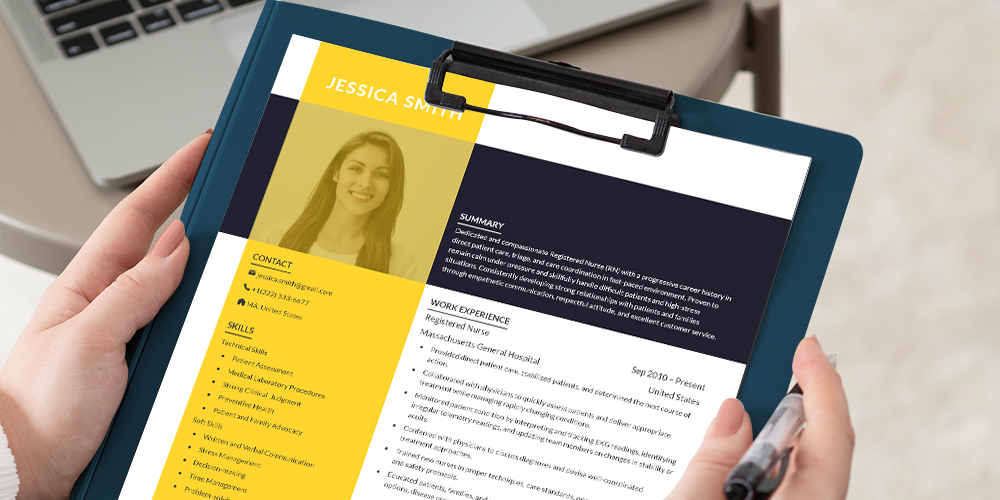
What Is a Resume Summary?
Being able to afford living expenses requires money, and having money requires a steady job. That is why generating an effective resume is so important. A resume summary is one of the primary sections of a well-written resume, which is a concise and short paragraph like a statement to disclose your accomplishments, skills, and years of experience.
A resume summary tells your prospective employer who you are and whether you are suitable for the offered position or not. When a job opportunity is provided, the employing companies are looking for someone who has walked in the same work path with shared related backgrounds. Hence, when the recruiters receive the applicants’ resumes, they scan each item for a few moments and then move on to the next.

Why a Resume Summary Is Important
Landing an interview is the sole purpose of writing a worthwhile resume in the first place. You need to write an excellent summary of qualifications and skills, providing an overview of your profile information in a few minutes to convince the manager to read the rest of your resume. Although writing a resume summary is not mandatory, it is highly advised and proven effective.
Some people slightly confuse the resume summary with the objective section. The objective section is specifically included to disclose why you are applying for a particular position and what you are trying to achieve. Incorporating an objective section is appropriate for those with limited experience, especially for recently graduated college or high school students.
Whereas the resume summary highlights your skills and accomplishments. It is more suitable for people with a noticeable work history. You may add both of these sections (resume summary and resume objective) or just one of them, depending on the job opportunity and the sophistication of your previous experiences.
Another prevalent confusion probably lies in the title of this section. When we want to summarize something, we see it upon ourselves to include a chain of incidents and the primary events. Hence, some people tend to summarize the whole resume and their background in this section. Keep in mind that this section is more like a statement to make the recruiters notice you. Just mention the points that are eye-catching and worth mentioning.
resume_4_light_banner
Tips to a Well-Written Resume Summary
Before starting, it would be good to take a while to reflect on your achievements and skills. You may include awards, certifications, etc., to show that you are more than just a stiff work history. If you are one of those people who would like to take charge or has already significantly led a group of people, make sure to include it in this section.
You don’t have much space to showcase all of your accomplishments, 2 to 3 sentences at most. Therefore, you need to single out the best and most important ones and include them in the resume summary. Make sure that your statement is concise and readable enough to capture attention. You want to give the recruiters a reason that you are a worthy applicant, and they should read the rest of your resume.
One thing that can help you a lot is the job description in the application form. Study it carefully to make sure your qualifications are aligned with the job description or somewhere along that line. Then use the matched qualifications and achievements to develop one or two sentences to showcase your capabilities. Don’t make it longer than four sentences because you want to look confident, not desperate.

Resume Summary Examples
Create the right mindset for yourself by reading several resume summary examples. Well-written confident examples break the fossilized barriers of unreal expectations and place you inside a structure that you will probably use throughout your professional life. Companies, institutes, and basically anywhere you want to apply to follow a similar organizational code of conduct. Hence, getting to know the jargon and formats will assist you in communicating more profoundly.
For instance, here are two examples of well-written resume summaries:
- Passionate goal-oriented content writer experienced in writing articles, blog posts, and social media content.
- Well-qualified SMB Account Executive with 4 years of supervisory experience in customer communication and maximizing sales. Highly responsible and committed with certified managing credentials.
Notice that none of the above examples used the first-person perspective, concise sentences, and appropriate adjectives. Always open your statement with one of your core adjectives. Avoid using the passive voice as much as you can.
First, decide on the field and position you want to apply to, and choose the keywords and key actions. Then, check the related resume summary examples and read as many as you need to inspire you to write your own. Afterward, you can start developing your resume summary.
resume_5_dark_banner
Things You Need to Avoid
- Do not summarize your professional background under any circumstances. A resume summary is meant to highlight your most significant achievements. It’s not about your life story.
- The purpose of writing a resume summary is to convince a particular recruiter that you are fit for the position you are applying for, so he/she would consider your resume as a prospective candidate. Therefore, you need to mention specific data or numbers, providing that they are worth mentioning. Say, as a sales manager, you adopted a strategy that expanded your company’s venues significantly in your previous job. This particular piece of information contributes to promoting your image and personal brand, and it has to be mentioned.
- A resume summary is meant to highlight that you are suitable for the position you are applying for, so you need to emphasize the qualifications solely related to that position. Therefore, you need to keep the content as goal-oriented as possible. Mention your skills, abilities, and knowledge as precisely as possible.
- Remember that you are not writing a resume objective, so you do not need to explain your reasons for applying.
- Do not start writing your resume from the summary. In fact, keep this section till the very end. Once you have written all the information, it is a lot easier to realize which ones are more related to that specific position.












